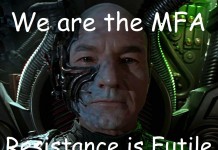 A recent New York Times Bookends feature focused on writers reviewing other writers—specifically the argument of “should they or shouldn’t they?”
A recent New York Times Bookends feature focused on writers reviewing other writers—specifically the argument of “should they or shouldn’t they?”
Zoë Heller and Adam Kirsch discussed the topic, touching on why some authors are reluctant to review others, but also why it’s important to do so.
Heller writes:
“Some recuse themselves from reviewing any contemporary fiction at all. Others review only those novels they can praise in good faith. Still others adopt a tactful, discursive reviewing style that allows them to write about books they don’t rate without actually copping to an opinion.”
Kirsch writes:
“Write a bad review and you make an enemy for life; no writer ever forgets a pan. And these days, when so many writers work in the academy, an enemy can be a real threat to one’s career. Just wait until the victim of your bad review, or his friend or student, turns up on your hiring committee or your prize jury.”
It makes you wonder why anyone would review a book if there is bigger downside that could come from a negative review. However, as a reader who looks at reviews before deciding to purchase a book, I wish more people would be honest.
It’s difficult combing through them and attempting to figure out who the authors’ friends and relatives might be—not to mention those who are clearly being rude for no other reason than the fact that they have access to a computer.
As a reader, I would appreciate if more authors got involved. I understand there is an element of competition involved between authors. If readers have a finite amount of books they’re able to read in one lifetime, of course you want to them to read your books. But I feel writers have something at stake in the industry. Being honest with readers—regardless of whether you think a particular book is good or bad—is important. Readers should take kindly to those who are honest.
I think it’s important not just for authors to tout those books that are great, but also to be critical of those could have been better. I’m not saying it’s always necessary to trash another’s book. However, getting into the aspects that could have made a novel better is a benefit not only to that author, but aspiring writers and readers as well.
Opinions, of course, will differ—but that also makes the discussion all the more interesting.
In this Bookends segment, I think I leaned on the side of Kirsch, who finished his essay with this:
“For all these writers, criticism was a way of understanding themselves, of discovering how they did and did not want to write. It was also a means of educating the public, preparing readers for the revolution in taste they wanted to sponsor. Perhaps a writer can’t be great without a touch of this kind of aggression, this intolerance of artistic error. At the very least, novelists who do risk writing criticism should know they’re in the best of company.”


































There’s a diplomatic way to avoid a bad situation. Preview the first 10% of a book before agreeing to review it. If what you see is full of typos or it just isn’t good, you can elect not to read it.
But if you don’t like it, should you still review it to be honest about what you think? I think that’s the sticky part. Even if it’s a well-written book, but you couldn’t connect to the story or something was missing, should authors still review it and be honest?
Unfortunately, reviews written by those who are known to be authors themselves are deleted in some online bookstores.
I reviewed one book on my website, the Amazons, and Goodreads. I really hated to do it, but I gave it an unfavorable critique and only two out of five stars. If I had read the first 10% online, I wouldn’t have bought the book in the first place.
If I get a review I don’t like, I don’t react online. I sit back and mull over what the reviewer said to see if it has any merit. I’d rather hear the truth than a sugar-coated rave about something that doesn’t deserve it.
Writers are readers too. Why not let them review other writers’ work?
A childish response from a negative review just tells me that the review was probably right and I shouldn’t waste my money or my time.
“Bad” reviews simply make you try harder. They teach you, not unlike your favorite English teacher who handed back your paper/report/essay full of red ink and “suggestions.”
Novelists that review books do exist; I am one of them and have been for years. What’s more I get paid to, not merely because I offer an unstinting review but because I strive to extol the good aspects of each piece as well as its flaws.
As a writer, I appreciate the effort that goes into writing a book. I appreciate that odd, monochromatic feeling that washes over one when at last one “kills the beast and flings it out into the public”… and can do nothing but stand, waiting for those dreaded bad reviews. You know they’re coming, like great gobs of guano dropping from the Seagulls of Snark, wheeling overhead and cackling as writers below run for cover.
Wipe it off and use it for fertilizer. It’s great for the soil.